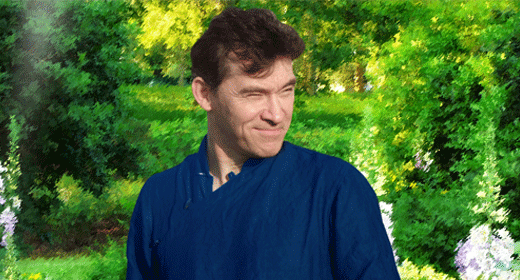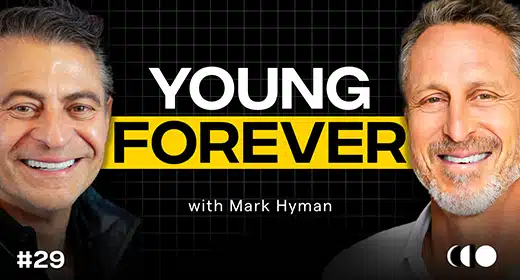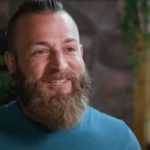by Peter Diamandis: IS THE LENGTH OF YOUR LIFE PREDETERMINED?
How long you live is a function of many factors: where you were born, your genetics, your diet, exercise, sleep, and your mindset.
Most people imagine that longevity is mostly inherited, that the genetic cards you are dealt have predetermined your lifespan.
You may be surprised by the truth.
In 2018, after the analysis of a 54-million-person ancestry database, scientists announced that lifespan has little to do with genes.
In fact, heritability is accountable for roughly 7% of your longevity.
The highest estimates for heritability verge around 30%—which still means at a minimum, you’re 70% in control of how you age.
The power of shaping your healthspan is much more in your hands than you might have imagined.
Dr. Hyman began our conversation discussing the “exposome” which is the sum of all the things we’re exposed to in our life, starting with our mother’s womb, and extending throughout all of life to our diet, exercise, and sleep patterns.
The exposome consists of “all the things that are washing over our microbiome, impacting gene expression and driving the changes that can ultimately lead to chronic disease.”
Dr. Hyman’s view is that a staggering “90% of chronic disease is caused by the exposome, not the genome.”
He tells me “even single gene disorders, like sickle-cell anemia, can be modified through lifestyle.”
This is in line with Dr. David Sinclair’s Information Theory of Aging, which reminds us that while our genes don’t change as we grow older—what does change is the expression of our genes. In other words, which genes are turned on and which genes are turned off—also known as our epigenome (“epi” coming from the Greek word for “above”).
So, not only is your health not predetermined, but if you leverage the near-term tools at your disposal to maximize your longevity—using the science we already have today—you may be able to significantly impact your healthspan in the coming decade.
What most people fail to realize is that if you can add just 20 healthy years onto your current lifespan, during those 20 years, science will not have stopped and taken a break—instead, it will have increasingly accelerated.
It’s not far-fetched to say that we may see more progress in medicine over the next 10 – 20 years than we have in the past century.
This means that if you commit to a healthy lifestyle, and capitalize on cutting-edge diagnostic and therapeutic tools, you may successfully add a decade to your life—but by doing so, you won’t just be adding 10 years to your life. You’ll be adding 10 years plusthe decades made available to you by tomorrow’s science.
THE LIFE-SAVING POWER OF CURIOSITY
Most of us really don’t know what’s going on inside our bodies until we look.
And, unfortunately, if you’re like most people, you’re likely an optimist about your own health, and never bother to look inside unless there is an obvious problem. The chances are that you know more about what’s going on inside your car than you do your own body!
Hyman and I agree that the human body is very effective at hiding disease in the early stages.
Stage-1 and Stage-2 cancers typically don’t produce recognizable symptoms. You don’t realize there’s an issue until you’re diagnosed with stage 3 or stage 4—when it is often too late. Parkinson’s disease, for example, only becomes apparent in its late stages, once 70 percent of dopamine-producing neurons in the substantia nigra have been lost.
How, then, do you catch early cancer, neurologic or heart disease when you have the best chance to do something about it?
The logical (and perhaps uncomfortable) answer is, by actively looking for it.
This is why I co-founded (and now chair) Fountain Life, a global platform that provides advanced diagnostics and vetted therapeutics to promote a longer, healthier, and more vital life. At Fountain Life, members receive an annual 150 GB “upload” of imaging, genetic, and blood-related diagnostics to identify current or potential diseases at the earliest possible stage—when they can be most effectively cured.
Shocking data from 1,500 seemingly healthy adults showed that 2% have an undiagnosed cancer, 2.5% have an aneurism they didn’t know about and a whopping 14.4% have an actionable, life-threatening finding.
But why do so many Americans suffer from chronic disease in the first place?
Aging is obviously the major risk factor for the diseases of aging—but as Dr. Hyman remarks, lifestyle is another major piece of the puzzle.
“Based on the science we have now,” Dr. Hyman tells me, “we understand the basic causes of disease and aging. We understand the basic ingredients for health, the science of creating health.”
“We’ve been thinking about the fountain of youth since Methuselah,” Dr. Hyman remarks. But for centuries, physicians were taught to practice “reductionist medicine,” failing to look at the “underlying mechanisms that underly all disease,” and taking a disease-centric approach.
Dr. Hyman and I agree that “medicine is [undergoing] a revolution, a paradigm shift where the old ideas of what we thought was true about disease are shifting, and now we’re… looking at the body as a system. It’s systems theory, systems biology, systems medicine clinically applied through the lens of functional medicine.”
“What was missing,” Dr. Hyman goes on, “was the question of why things go wrong [inside the body]. The hallmarks of aging are the cause of diseases and diseases are the cause of aging. But what’s the cause of the hallmarks?”
Functional Medicine, he tells me, is a way of avoiding the “reductionist model of treating the hallmarks of aging with reductionist therapies.”
It’s a way of disrupting the framework of disease-centric medicine, and focusing on a systems-wide creation of health. “We can’t be studying diseases,” Dr. Hyman shared with me. “We need to be studying mechanisms and causes. And then we need to be working on those.”
As Dr. Hyman notes, trying to find a drug for Alzheimer’s and one for heart disease and one for cancer and one for bone frailty—as opposed to solving their shared cause—is a wildly ineffective use of our resources.
FINAL THOUGHTS
In today’s blog, we looked into the basics of aging science, and learned the power of Functional Medicine—coupled with advanced diagnostics tools—to add healthy decades to your life.
Since there is nothing more valuable to anyone than extra years of health, it is my strong belief that capital will continue to flow into the health extension field at accelerating rates, and the goal of adding 30+ healthy years to the average human lifespan will eventually become a reality.
In part two of this three-part series with Dr. Hyman, we’ll cover 5 basic steps you can take TODAY to extend your healthspan.
We’ll zoom into the roadmap of your body, how it works, and how to hack diet, sleep, exercise, and modern medicine to stay young forever!
Are YOU ready to capitalize on this emerging healthspan revolution?
Read Pt 2 Here: Young Forever Pt 2: 5 Steps To Extend Your Healthspan – Peter Diamandis
Read Pt 3 Here: Young Forever Pt 3: Understanding The Hallmarks Of Aging – Peter Diamandis & Mark Hyman










































